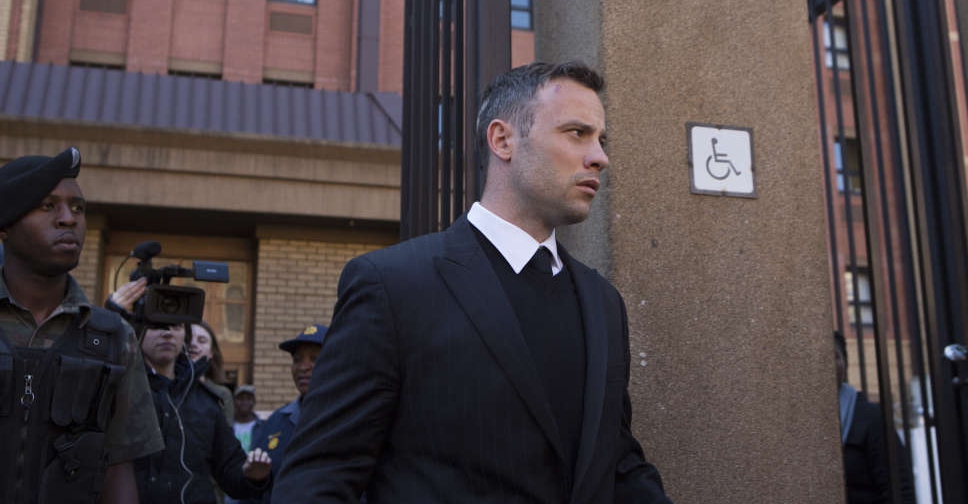
Former South Africa paralympic athlete Oscar Pistorius, jailed in 2016 for murdering his girlfriend Reeva Steenkamp, will ask a parole board on Friday to release him early from prison, lawyers and prison officials said.
Steenkamp's family oppose his bid and will give verbal and written statements at the hearing on the impact the murder had on them, their lawyer Tania Koen told Reuters.
"June is not looking forward to it, but doing it for Reeva," Koen said on Thursday, referring to Reeva's mother June Steenkamp.
Pistorius, behind bars for almost seven years, became eligible for parole after serving half of his 13-year prison sentence.
He met Reeva Steenkamp's father last year when participating in a process known as victim-offender dialogue - part of South Africa's restorative justice programme that brings parties affected by a crime together in a bid to achieve closure.
The closed-door parole board meeting is scheduled to start at 10 a.m. local time (0800 GMT) at the Atteridgeville prison near capital Pretoria.
The independent parole board must determine, among other issues, whether Pistorius is at risk of committing similar crimes in the future, prison spokesperson Singabakho Nxumalo said.
It will also consider his disciplinary record, training programmes in prison and his physical and mental state, prison officials said.
Pistorius' lawyer, Julian Knight, told Reuters he was not in a "position to comment until such time as the Parole Board has made a decision".
The athlete, known as "Blade Runner" for his carbon-fibre prosthetic legs, went from public hero to convicted murderer in a trial that drew worldwide interest.
Once the darling of the Paralympic movement for pushing for greater recognition and acceptance of disabled athletes, Pistorius shot dead Steenkamp, a model and law student, in his bathroom on Valentine's Day in 2013.
Gun enthusiast Pistorius told the court he had believed Steenkamp was an intruder when he shot her several times with ammunition designed to inflict maximum damage to the human body.
He was jailed in 2016, initially for a six-year term, but had this sentence increased to 13 years after an appeal by prosecutors who argued the initial sentence was too lenient.



 Israeli attacks on Gaza killed 60 people in 24 hours
Israeli attacks on Gaza killed 60 people in 24 hours
 Trump fires National Security Agency director
Trump fires National Security Agency director
 Israel steps up Syria strikes, says Turkey aims for 'protectorate'
Israel steps up Syria strikes, says Turkey aims for 'protectorate'
 US sending Israel 20,000 assault rifles that Biden delayed
US sending Israel 20,000 assault rifles that Biden delayed



